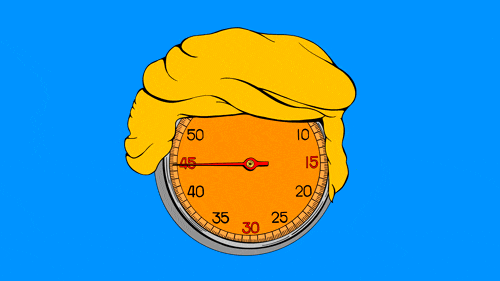Speculation abounds about why the grand jury hearing evidence from Manhattan District Attorney Alvin Bragg’s criminal investigation into Trump’s alleged hush-money payment to actress Stormy Daniels apparently took Wednesday and Thursday off from the case.
The grand jury, which meets Mondays, Wednesdays, and Thursdays, was reportedly told not to report on Wednesday and then heard evidence about a different case Thursday. It isn’t known whether the other case is in any way related to Trump, but Trump has felt free to claim that this pause means the DA’s office is in “complete disarray.”
There is zero evidence for Trump’s assertion, just as there was zero evidence of his proclamation that he would be arrested Tuesday—which obviously didn’t happen.
Since grand jury proceedings are secret and Bragg’s office is properly not disclosing information about it, the actual reasons for a pause in the grand jury hearing evidence about Trump are unknown. But based on my experience as a prosecutor, there could be many reasons, ranging from the mundane to the more substantive.
Starting with the mundane, Bragg’s office might just need some time to draft and finalize the indictment against Trump to be presented to the grand jury. Once it is presented, then the grand jury votes on the indictment. Only after that vote—typically by a majority—does the prosecutor formally take the next step of starting the criminal case by arraigning the defendant in court. It is at that time Trump would be “booked”—meaning fingerprinted and photographed.
A more substantive reason for the pause could be that prosecutors are deciding whether they need to put more witnesses into the grand jury. These could range from people like former Trump Organization Chief Financial Officer Allen Weisselberg, who could provide the foundation for tying the expected falsifying business records to other charges, such as financial crimes, that the falsification may have been intended to cover up. Prosecutors might also want actress Stormy Daniels to give testimony as well about the circumstances of her being paid the hush money and possibly even the facts of her affair with Trump. It is also possible that prosecutors want to put Michael Cohen—Trump’s former “fixer” attorney and a key prosecution witness—back in for more testimony to rebut the testimony on Monday from Robert Costello, for which they may need to prepare for with further interviews of Cohen.
Hopefully this isn’t the case—it would be poor strategy to put Cohen in front of the grand jury again. A grand jury investigation is not a trial where the prosecution needs to prove its case beyond a reasonable doubt, so they do not need to rebut anything. Grand juries are used primarily to present evidence necessary for an indictment under a “probable cause” standard—much lower than proof “beyond a reasonable doubt”—and requiring only a majority vote of the jurors. To accomplish that here, prosecutors likely would only need the paper-trail evidence of the money paid to Stormy Daniels and the testimony of Michael Cohen as evidence that the money was for the purpose of buying her silence—rather than being a payment to Cohen as a legal retainer. Grand juries also are used to preview defense witness testimony—which is exactly what Robert Costello did when he testified—as well as to lock in defense witnesses or any other witnesses who might change their stories later.
The least likely reason for any pause by the grand jury is that Bragg’s office is reconsidering the strength of its case after Costello testified. This seems unlikely given how frustrated Costello seemed to be with his ineffectiveness before the grand jury.
Costello and Trump’s team might understandably be disappointed at what an inept job Costello did, since they likely banked on the idea that Costello, as a former adviser to Cohen who had been privy to confidence shared under an attorney-client communication privilege, would be ideally situated to use such confidential information to damage Cohen’s credibility and undercut his testimony. But the only damage Costello is likely to have done is the damage to his own reputation, and possibly opening himself up to accusations that he violated legal ethics rules that prohibit a lawyer from trading on confidences learned from a client to disadvantage that client.
Speaking of legal ethics, one last tantalizing possibility is that Bragg’s team needs some time to work on a motion to disqualify Trump’s criminal defense attorney—Joseph Tacopina—from further representation of Trump in the case, based upon Tacopina’s prior advising and representation of Stormy Daniels. From public reporting, Tacopina had confidential communications with Daniels when she sought to potentially hire him about the Trump hush-money matter. Those communications have now been turned over to DA Bragg’s office by Daniel’s current attorney and could serve as the basis for seeking to disqualify Tocapina.
Like Costello, Tacopina would appear to be using confidences gained from Stormy Daniels under the cover of attorney-client protections to disadvantage Ms. Daniels and advantage his new client—Donald Trump.






